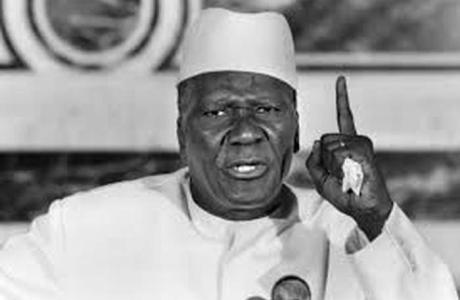
On March 26, 1984, Sékou Touré, an emblematic figure of the African independence struggle and the first president of Guinea, passed away. Forty-one years after his disappearance, his legacy continues to fascinate and challenge, testifying to a complex and determined personality who profoundly marked African history.
Born on January 9, 1922, in Faranah, Sékou Touré was much more than a simple political leader. Heir to a lineage of resistants, grandson of Samori Ture – the famous Muslim king who fought against French colonization – he carried within him a destiny of challenger and builder.
His journey is that of a man who dedicated his life to African emancipation. A former trade unionist, he understood early on that freedom came through organization and popular mobilization. In 1958, facing the French colonial referendum, he uttered the now-historic phrase: "Guinea prefers poverty in freedom to riches in slavery." On that day, Guinea became the first Black African country to proclaim total independence, defying French threats.
His political project was ambitious: to build a modern, socialist African state, free from any colonial guardianship. He nationalized foreign companies, developed a bold pan-African policy, and supported liberation movements across the continent. His support for figures like Malcolm X and Stokely Carmichael illustrates his internationalist dimension.
However, his path was also marked by an authoritarian radicalism. His regime was accused of serious human rights violations, with thousands of political prisoners, notably at Camp Boiro. This dark dimension of his rule cannot be overlooked, even if estimates of the number of victims vary considerably.
Linguistically and culturally, Touré was a precursor. He officialized eight local Guinean languages, thus recognizing the cultural richness of his country against colonial linguistic hegemony. This gesture demonstrates his desire to restore dignity and visibility to African cultures.
Economically, despite his mistakes, he attempted to chart an original path, oscillating between socialism and gradual opening towards a market economy. His ability to adapt, particularly from 1978 by drawing closer to Western countries, shows remarkable political pragmatism.
Forty-one years after his death, Sékou Touré remains a complex and controversial figure. A hero of independence for some, a dictator for others, he embodies the challenges and contradictions of post-colonial African leaderships. His journey reminds us that history is never Manichean, but always nuanced.
What we can retain from him is his unwavering determination, his African pride, and his deep conviction that colonized peoples could write their own destiny. In a world still marked by colonial legacies, his message remains entirely relevant.












